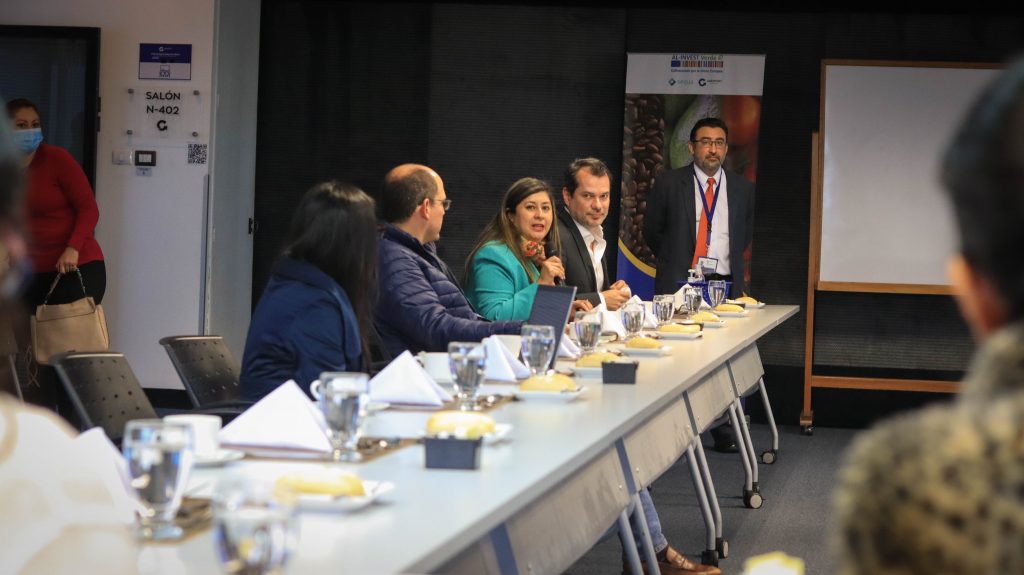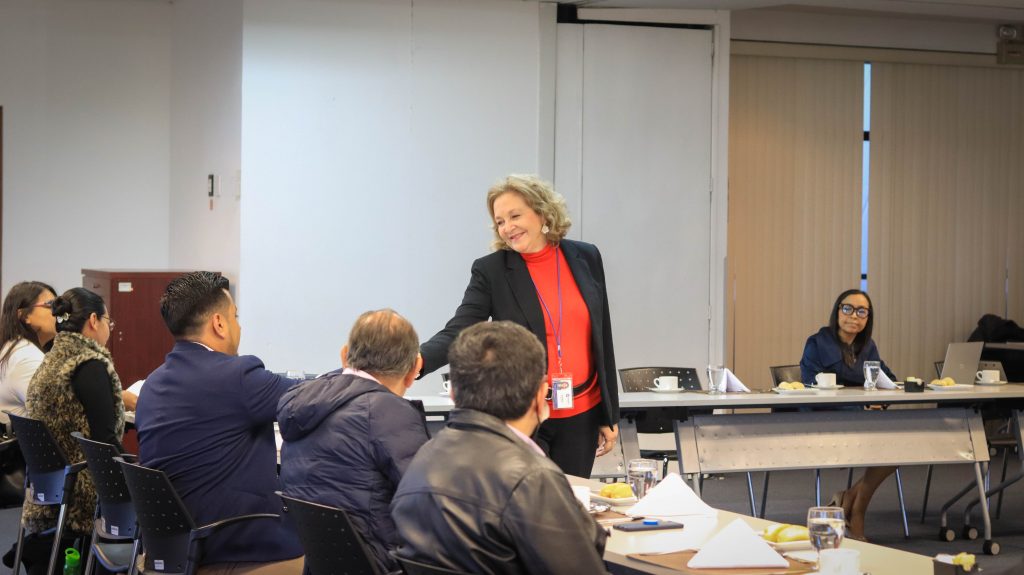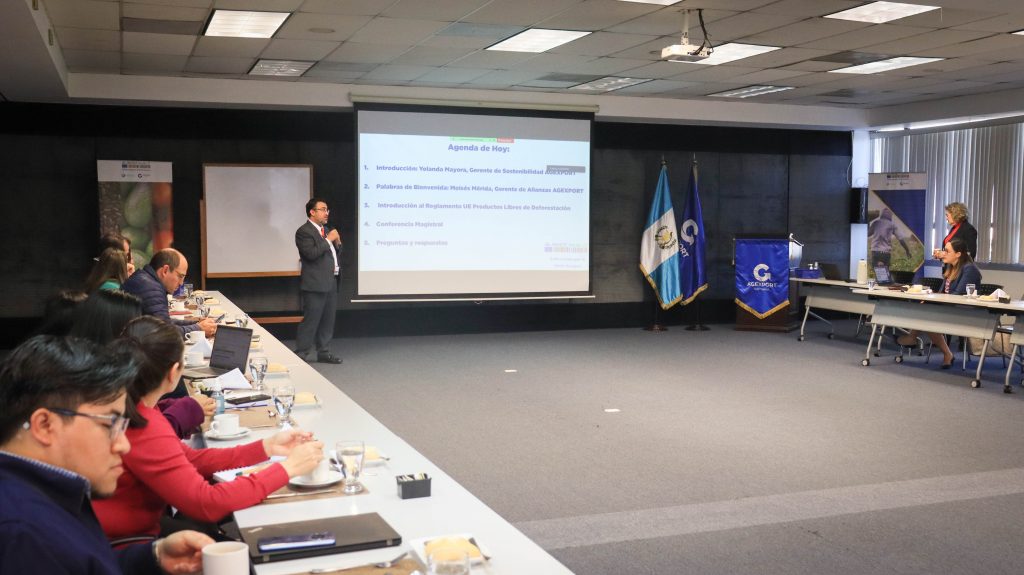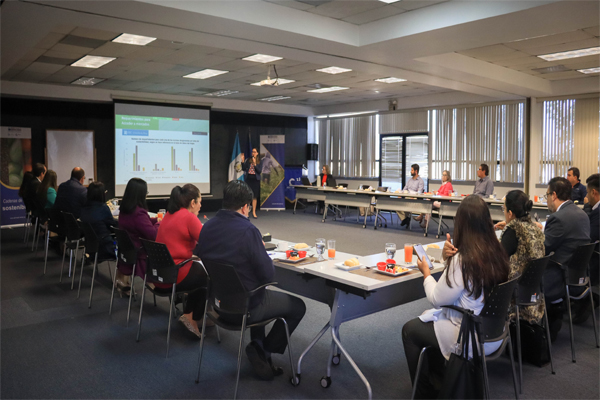On February 1, the conference on the Traceability Systems and Good Practices of the Palma Sector was held, as the first conference that the Sustainability Management will develop in 2023, to strengthen knowledge and raise awareness about the importance of incorporating good social and environmental practices into export models as competitiveness tools. In addition, Agexport associates from the coffee, cocoa, wood, and rubber sectors, also attended by members of sugar, wood, and palm trade associations, and functionaries from INAB and CENCIT, among others.
This event was supported by the Al Invest Verde Program, financed with resources from the European Union, which on this opportunity seeks to promote sustainable growth and employment creation in Latin America, its main objective being to support the transition towards a low-carbon, resource-efficient and more circular economy, of which AGEXPORT is one of the main partners.
As a framework for the conference, the new “Deforestation-Free Products Regulation” of the European Union was addressed as the first point, which is expected to come into force as of 2025, and which will apply to exports of coffee, cocoa, wood, bovine meat, rubber, soybean and palm oil, as well as their derivatives such as: furniture, chocolates, skins, etc. Among its provisions, to allow the importation of these products into the European Union, it must be demonstrated that they have not been produced at the cost of degrading forests, for which they must present due diligence processes and include strict traceability systems in production areas, using georeferencing systems.
Afterwards, Karen Rosales, executive director of the Gremial Palm Grower (GREPALMA), shared the efforts they have been making in recent years to demonstrate that their production operates under the highest social and environmental standards. Palm oil is the number one Guatemalan product to the EU market, with more than US$940 million in 2022 and the sector is recognized worldwide as the first in productivity levels.
As part of its sustainability model, was mentioned that the sector has an environmental and climate change policy, under which it is applying georeferencing systems to provide strict traceability and demonstrate, on a scientific basis, that palm production has not displaced forests. This system will be essential to comply with the Deforestation Regulations that will soon be enforceable in the European market.
Cannot have an impact on European legislation, but with this type of initiative it is possible to influence the systems for its implementation, demonstrating that Guatemala is already applying good practices and it is not sacrificing forests, mentioned Rosales.
The Traceability System that began in 2020 with the support of a Dutch technology provider, for which geographic information was collected for more than 37,770 km (33% of the country), not only the areas of palm cultivation (which represents only a 2%), but their environments. With the use of satellites, they collected the data of production areas to 2020, they carefully studied the definition of what a forest is in accordance with the EU regulation, they worked with MAGA and INAB to define the forest areas throughout the country and estimated historical deforestation between 1989 and 2020. Finally, they established a satellite monitoring system that gives them real-time information on what is happening in the production areas and that their buyers can access.
Either way, Rosales opened the possibility of making alliances with other sectors to share these systems that could be used for traceability in products contemplated in the regulation, recognizing the challenges faced in sectors where the chains are made up of thousands of small producers.
Finally, There was an exchange of comments and ideas among the participants, standing out the investment costs for producers involved in this type of mechanism, which should be shared with buyers.









